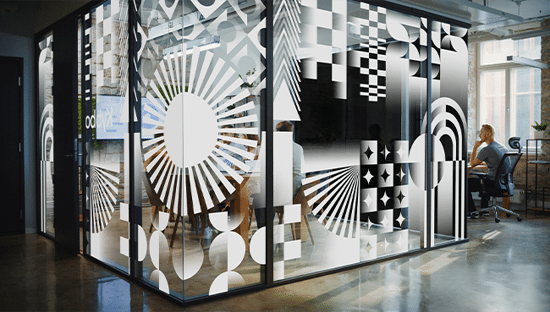Why sustainability continues to grow within European business
With energy sustainability a top-three priority for the European Union’s Europe 2020 strategy, a series of clear-cut targets have been set out.
Reducing greenhouse gas emissions, increasing the share of renewables and improving energy efficiency – all by 20%. Translating these ambitious goals into tangible realities requires concerted efforts from all sectors of society, including the business world.
Companies can contribute to a more sustainable Europe in a number of ways. Developing environmentally responsible products and services, reducing the carbon footprint of daily operations and cutting resource consumption can all have a positive impact.
Businesses can also foster environmental awareness among their employees and partners, encouraging them to incorporate sustainability into their daily work.
Digital transformation
Digital transformation is another measure that can help to mitigate negative environmental impacts, improve productivity and cuts costs. Even a simple change, such as switching from paper to electronic invoicing (e-invoicing) can bring significant savings.
Research commissioned by Ricoh revealed that companies pay 2.6 times less for receiving an electronic invoice than for its paper equivalent. In the long-term, the switchover from paper invoicing to e-invoicing could drive cost savings of €243 billion for businesses across Europe.
Companies which have already launched a digital revolution in the office will be better prepared for a future shaped by “intelligent workers” (iWorkers).This new breed of skilled employees thrive in a digitally connected workspace where they have 24/7 access to all the necessary information to meet the needs of the business and its clients.
While another Ricoh commissioned study found that only 4% of business leaders considered the majority of their workforce to align with the iWorker definition, they expect this number to rise to 37% by 2018.
The potential of the sustainable economy
The European Commission is encouraging companies to exploit the great economic potential of a sustainable economy. The global market for environmental goods and services is already worth around €1 trillion per year and this is expected to double by 2020.
Forward-thinking business leaders are now preparing their organisations for the upcoming era of green growth. They have realised that sustainability is not a burden but a chance to improve a company’s overall performance, build consumers’ trust and drive profits.
Beginning a green transformation may seem daunting. Audits conducted by a specialised partner can create a tailor-made sustainability roadmap for each organisation. Experts can highlight inefficiencies and propose adequate solutions for identified challenges.
Setting up such a plan is the first step in exploring eco-improvements across the whole business model. Progress monitoring and periodical overhauls of agreed tactics are necessary to make sure a company stays on target with its green commitments.
As we have found with many organisations – multinationals and SMEs alike – a systematic approach can bring significant results. This includes a considerable reduction in paper and electricity consumption, along with renewed motivation for employees to contribute to their company’s green goals.
Journey towards sustainable business
A company’s journey towards a sustainable strategy often follows three phases. It starts with passive compliance and environmental regulation, where all the legal boxes are checked but there is no ambition to drive positive change.
Next, the company’s leaders define their own environmental goals and proactively implement green practices, setting the bar above basic regulatory requirements. It is usually at the end of this phase that sustainability efforts start to pay off, boosting profits and performance.
The ultimate destination of this journey is what Ricoh defines as “the responsible stage” – a rewarding turning point where ecological solutions and business strategy complement each other to drive economic benefits for the company, consumers, the environment and the wider economy.
All businesses have the potential to move from the passive to the responsible stage. This transition is imperative in turning the Europe 2020 sustainability targets from a grand vision into reality.Now is the time for those lagging behind on green goals to join the sustainability revolution.
Inspiring examples of environmental champions and encouragement from policymakers can position green growth as a compelling target for businesses. Going green is no longer a jump into the unknown, but a smart step towards a sustainable and profitable future.
Source: Ricoh
Topics
Interested in joining our community?
Enquire today about joining your local FESPA Association or FESPA Direct
Recent news

Streamlining personalisation with tech: Insights from the SmartHub Conference 2025 speakers
Personalisation Experience 2025 (6 – 9 May 2025, Messe Berlin, Germany) is running its inaugural SmartHub Conference from 6 – 8 May 2025.

Special Effects in DTF: How Neon Inks Are Making Apparel Pop
Neon fluorescent inks are the latest innovation in DTF printing, offering vibrant, eye-catching effects under both daylight and UV light, giving apparel decorators a competitive edge. Testing shows good wash durability, though market perception of added value is still developing. With increasing adoption and ongoing technological advancements, neon represents a significant upgrade for creative customisation.

Unlocking Growth Opportunities in the Printed Personalised Apparel Industry
The printed personalised apparel industry is booming, projected to reach $10.1 billion by 2030. Driven by consumer desire for self-expression and branding needs, technological advancements like DTG/DTF and e-commerce integration are key. Sustainability, eco-friendly materials, and on-demand printing are crucial growth drivers. Businesses leveraging these trends, including AI and social media, have significant commercial potential.

How to grow your business with white ink applications
Opaque white ink is revolutionising signage, vehicle graphics, wallcoverings, short-run and wood packaging, and window blinds by enhancing vibrancy and clarity. This enables printers to offer high-demand, standout products, boosting profit margins. HP Latex white ink applications and their large format printing solutions will be showcased at FESPA 2025 in Berlin.